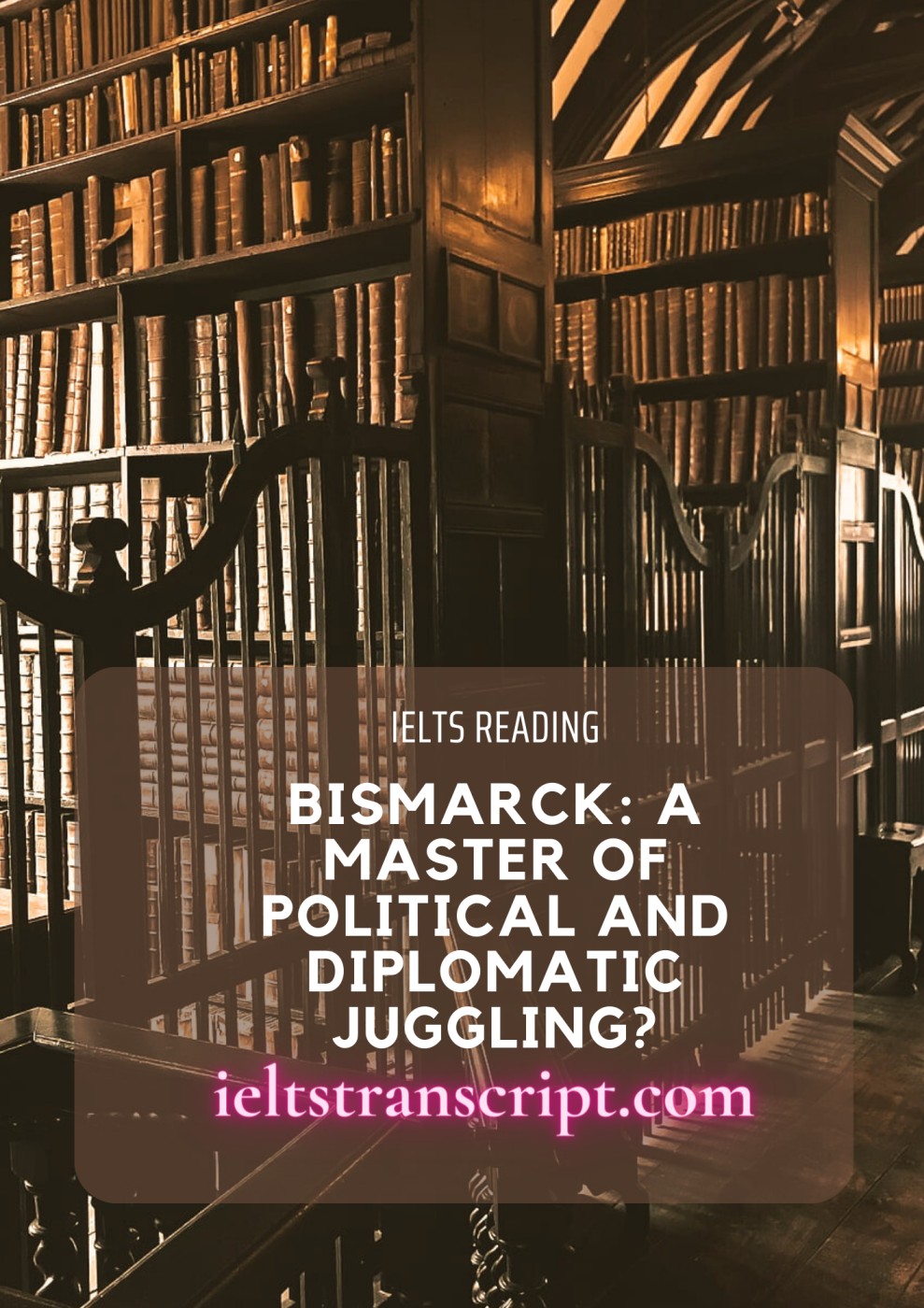- Đối với sản phẩm có giá: Sau khi chúng tôi ghi nhận thông tin đã thanh toán sản phẩm của bạn, sản phẩm sẽ được mở khóa và bạn có thể xem trực tiếp và tải tài liệu sản phẩm.
- Đối với thành viên trả phí: Bạn có thể mua và thanh toán sản phẩm với giá 0đ để tải tài liệu sản phẩm.
- Bạn có thể liên hệ với chúng tôi để được hỗ trợ mở khóa sản phẩm sớm nhất.
Bismarck: A Master of Political and Diplomatic Juggling?
- Chúng tôi chấp nhận các phương thức thanh toán sau đây: Thẻ tín dụng, thẻ ghi nợ, PayPal, chuyển khoản ngân hàng và tiền mặt.
Chúng tôi sẽ không thu thêm phí cho bất kỳ hình thức thanh toán nào.
- Nếu bạn gặp vấn đề về sản phẩm của chúng tôi trong thời gian sử dụng, vui lòng liên hệ với chúng tôi để được hỗ trợ xử lý sớm nhất nhé.
Xem trước mẫu
Bismarck: A Master of Political and Diplomatic Juggling?
A Otto Von Bismarck’s rise up the political ladder was swift and relentless. Having entered parliament in 1847, he always harboured lofty ambitions, chief among them perhaps being the reunification of Germany into one strong, centrally controlled state, though his own personal thirst for power was arguably even stronger. On becoming Prussian Chancellor, he set about fulfilling his ambitions and in doing so proved himself to be a diplomat of some considerable skill. Victory in the Austro-Prussian war effectively ended Austria as a factor in German affairs. His political and military juggling was taken a step further when he orchestrated a situation where France declared war on Germany in 1.870, making the French seem responsible for a conflict he had always intended to create. And following another swift military triumph, this time over the French, the German empire was proclaimed in January 1871.
B In little more than nine years, Bismarck realised his lifelong ambition, steering Germany to reunification. And by defeating Austria and France in quick succession, he also created a power vacuum on mainland Europe which he was determined to fulfill himself. This was another opportunity for Bismarck to demonstrate his political and diplomatic cunning. He set about creating a dictatorial Germany in which he, as head of the Prussian parliament, would automatically become chancellor of the German empire. He drafted a new German constitution to suit his own purposes and, despite maintaining a veneer of democracy, the German parliament was effectively powerless to oppose him. Provinces that were slow to support him were enticed with bribes and before long the German empire was his to command.
C It is testament to his political skill that Bismarck achieved so much so quickly. At this point in his colourful political career he did appear, for all intents and purposes, a master of political and diplomatic juggling. But challenges lay ahead and Bismarck’s next target was the Catholic church, which he deemed too powerful and a threat to his political dominance. He proceeded to enact a series of laws which seriously eroded the power of the church. However, his plans backfired and Bismarck was forced to make a political U-turn. Though here again, he somehow managed to save face. The damage to his reputation was limited and indeed by the late 1870s he had even managed to win over the church whose support he now needed.
D Bismarck viewed the growing popularity of the Socialist Democratic Party as a serious threat. He bided his time and used the attempted assassination of the Kaiser as an excuse to attack the socialists in 1878, blaming them for the attempt on the Kaiser’s life. He immediately arrested the leaders, banned party meetings and suppressed socialist newspapers. But despite his efforts to destroy the socialist movement, its popularity had trebled by 1890. Just as his interventions with the church had not gone as planned, Bismarck once again failed to achieve his objective; though, to his credit, he held on to power.
E His domestic position was relatively secure after 1871, Bismarck devoted a lot of his time to foreign policy. Having used war to unite Germany and make her great, Bismarck now believed that his ambitions were best served by peace. His plan to isolate a hostile France would require all his considerable diplomatic skills. The Dreikaiserbund agreement of 1873 between Germany, Austria-Hungary and Russia was a first step towards doing just that. The Balkan crisis, a conflict involving Russia and Austria-Hungary, severely tested his diplomatic credentials, but his answer was to offer himself as an ‘honest broker’ to help resolve the dispute. The subsequent Congress of Berlin which he hosted was an outstanding success and only served to reinforce Bismarck’s reputation as a shrewd diplomat. Bismarck’s foreign policy would
...Để xem được đầy đủ nội dung và tải dữ liệu, bạn phải trở thành thành viên của chúng tôi và trả phí cho tài liệu (nếu có)











